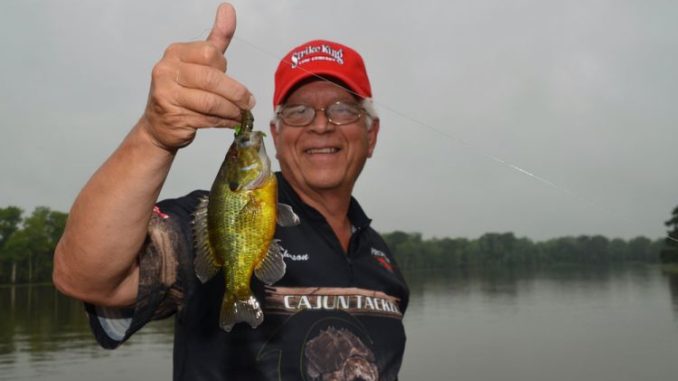
“Get in the books.” That’s Lyle Johnson’s message to his fellow fishermen.
As chairman of the state’s Fish Records Program, he encourages people to enter their fish, even if it isn’t a No. 1.
“Catching any fish in the all-time Top 10 is a real accomplishment.
“Most of the time, the reaction from people when they get their certificate is they are really happy. Whether the fish is No. 1 in the category or No. 10 doesn’t really matter.”
It takes a lot of his time, but Johnson loves the interaction with his fellow fishermen and the memories it has produced. One of his favorite stories concerned an 11-year-old boy who caught a 114-pound blue catfish, a potential new state record.
“One of our requirements is to have a biologist identify the fish. I called the biologist who signed the application and he mentioned that he never saw the fish, just a photograph. I was faced with having to call the family and tell them that the fish didn’t qualify.
“It had been over a week and I didn’t think it would turn out well. But, fortunately, they had frozen the whole fish. It breaks my heart to disqualify a fish, but you can’t change the rules for one person and not another.”
The application form is simple to fill out, but the most difficult part is finding an available biologist to sign off on it. “Calling the Baton Rouge office of the Department of Wildlife and Fisheries will get you to a regional office to talk to someone.
“Another option is checking with a local university, because any degreed biologist is qualified to sign the form. If the fish is small enough to freeze whole, it can be held for later identification if need be.”
Johnson cautions anglers to look at the official version of the records, which are housed on the Louisiana Outdoor Writers Association website, the designated keepers of the records. Many other websites will list the records, but they are often out of date and not accurate.
“What I encourage everybody to do is go look at the records. I guarantee if you fish any at all, you have thrown back or cooked a fish that qualified for the books. We have quite a few categories that don’t even have the full 10 entries.
“We are always adding new species or dividing categories. For example, a few years ago, we separated blue and channel catfish into separate categories. There are only about five entries in each now. That means that someone in Lake Verret will catch and eat a record fish this weekend. Any size fish will get an entry in an open category.”
One that personally surprises him is the bluegill category in the Fly Rod Division. It isn’t filled, in spite of this fish being a prime target for fly rodders.
The Fish Records Program maintains separate divisions for fly rods and for rod and reels. They also have a Pond Division for fish taken from private ponds.